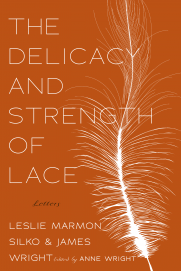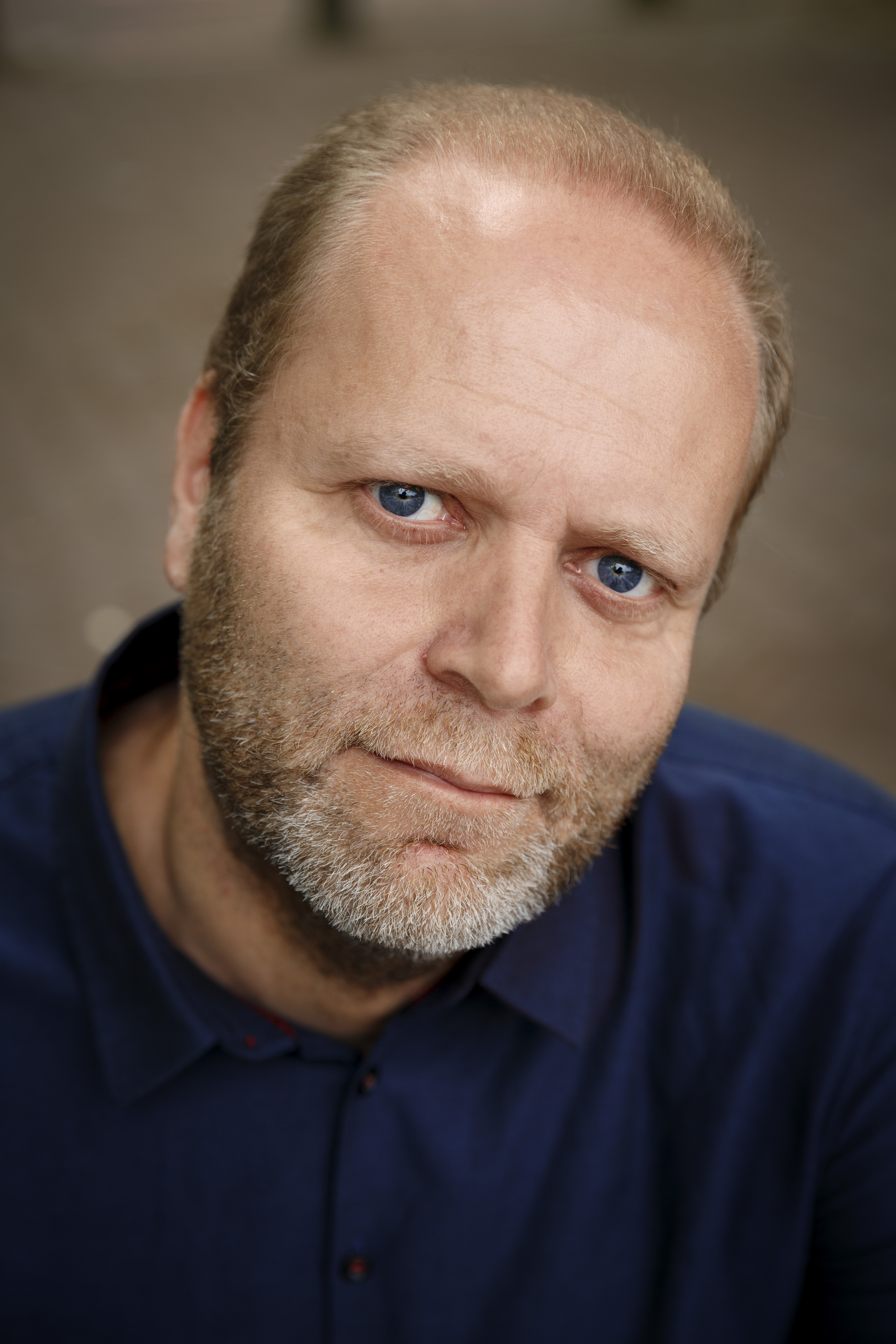 Het is niet vanzelfsprekend dat goede schrijvers ook aardige mensen zijn. Als er al zo’n verband bestaat is het misschien eerder omgekeerd; dikwijls zijn het gekwetste, hoekige mensen die vanuit cynisme scherp kunnen observeren. Dat maakt het tot een opluchting om de zeldzaam vriendelijke briefwisseling te lezen tussen de dichter James Wright en schrijfster Leslie Marmon Silko, gebundeld als The delicacy and strength of lace.
Het is niet vanzelfsprekend dat goede schrijvers ook aardige mensen zijn. Als er al zo’n verband bestaat is het misschien eerder omgekeerd; dikwijls zijn het gekwetste, hoekige mensen die vanuit cynisme scherp kunnen observeren. Dat maakt het tot een opluchting om de zeldzaam vriendelijke briefwisseling te lezen tussen de dichter James Wright en schrijfster Leslie Marmon Silko, gebundeld als The delicacy and strength of lace.
De twee beginnen te schrijven wanneer Wright Silko complimenteert met haar meest bekende boek, Ceremony: “I think I am trying to say that my very life means more to me than it would have meant if you hadn’t written Ceremony.” De enige keer dat Silko en Wright elkaar nog zullen ontmoeten is op het sterfbed van Wright, maar in de jaren die volgen wisselen de twee brieven uit over de haan from hell van Silko, Wrights reizen in Europa en natuurlijk de projecten waar ze op dat moment aan werken. Maar meer dan over iets anders gaat hun dialoog over de kracht van verhalen, over wat er eigenlijk gebeurt wanneer je een ervaring deelt, zoals in deze brief van Silko:
“I believe more than ever that it is in sharing the stories of our grief that we somehow can make sense out – no, not make sense out of these things… But through stories from each other we can feel that we are not alone, that we are not the first and the last to confront losses such as these. At Laguna whenever something happens (happy or sad or strange), that vast body of remembered stories is brought forth by people who have been listening to the account of this recent incident. Immediately the listeners, in turn, begin telling stories about the other times and other people from the area who have enjoyed or suffered the same luck, and by the time people get done telling you all about all the others who have lost wagons and whole teams of horses in the quicksand, you aren’t feeling nearly so bad about spending an entire Saturday digging your bay mares out of quicksand. “The word gets around,” as they say, and so it all becomes a matter of community knowledge and concern. If something very sad and difficult comes to you, you know that it will take its place with the other stories and that somehow, as a story, it will, from that time on, be remembered and told to others who have suffered losses.
Isolation is so overwhelming at these times – I could feel myself lying deeper and deeper in it until I could not talk, literally, until I did not want to talk to anyone – my mothers, my sisters – about anything. I still only write letters to you, and occasionally to Mei-Mei. I realize now how the telling at Laguna was meant to prevent the withdrawal and isolation at times like this.”
Dat het delen van verhalen nodig is om isolatie te doorbreken is de kern van Silko’s Ceremony. Maar eenvoudig is dat niet en ook Wright en Silko worstelen met de vraag wat het dan precies betekent, om ervaring te delen. Wanneer Silko Wright schrijft over voogdijproblemen, vertelt hij in zijn volgende brief over het moeizame contact met zijn eigen zoon, een poging om te laten zien dat hij haar pijn herkent en, op zijn manier, deelt. Alleen om daar later weer spijt van te krijgen – is het wel dezelfde pijn? Heeft hij misschien te weinig ruimte gelaten voor haar verdriet, juist door zijn eigen littekens te laten zien? “We all seem doomed to a freedom to choose between indifference and sadness.”
Waarop Silko antwoordt:
I am overwhelmed sometimes and feel a great deal of wonder at words, just simple words and how deeply we can touch each other with them, though I know that most of the time language is the most abused of all human abilities or traits. But as you said, you can’t or won’t be indifferent. I realize many wonderful things about language – “realize” in the sense of feeling or understanding intuitively: I realize such things most often when I am greatly concerned with another person’s feelings.
Wytske Versteeg schreef Dit is geen dakloze, De wezenlozen en Boy. Haar nieuwe roman, Quarantaine, verschijnt deze herfst.






